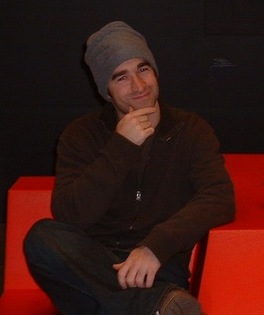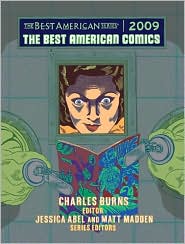Malcolm Gladwell
This evening we saw Malcolm Gladwell as part three of the continuing Seattle Science Lectures Series at Town Hall. The reading was being taped for C-Span, so I'm hoping it may show up on Book TV at some point down the road. Gladwell was in town to read from his new book Blink: The Power of Thinking Without Thinking. The book is about snap judgments and how we make them.
Tonight's reading focused on a chapter of his book that details the incidents leading up to the shooting of Amadou Diallo. Diallo was the 23-year old black man who was shot and killed by four white N.Y.P.D. officers in 1999 when they mistakenly thought that the wallet he was reaching for in his jacket pocket was a gun. Gladwell's theory is that the police made three critical snap judgment mistakes that allowed this tragedy to happen. Their first error was mistaking innocence for suspicion. Because he was a young black man hanging out on a porch in a rough neighborhood the police assumed he must be up to something (how we develop these kinds of prejudices could easily fill a whole different book). When the police came back to investigate, Diallo was still standing on the porch (of what happened to be his own apartment building). The rookie cops assumed that his staying there despite their presence as brazenness, when in fact it was probably only Diallo being curious as to what the police were doing in his neighborhood. The final and most critical error was mistaking a terrified man for a terrifying man. Diallo was a recent immigrant to the U.S. and his English wasn't the best, so the commands that the police shouted at him probably scared him. Instead of picking up on this, the police took his nervous behavior as being the actions of someone who was up to something illegal.
Gladwell calls these kinds of bad decisions 'momentary autism'. Autism in its rawest sense being the inability to interpret the intentions of someone's actions. In this case the cops autism was caused by two main factors. The first factor was the effect of arousal. When the body is in a hyper-aware state, it shuts down and causes us to act in strange ways. Because the cops in the Diallo case were all inexperienced, it was easy for them to mistake Diallo as a threat, working themselves into a state that would make it tougher for them to make rational decisions. The second factor Gladwell called out was the effect of time. In situations where we don't have enough time to make a decision, we usually rely on stereotypes. In this case the police had assumed that Diallo was up to something, so when he reached into his pocket their natural inclination was that he was pulling a gun out.
In the retelling of the Diallo case, it's easy to evaluate how the cops reacted and to second guess their decisions, however Gladwell points out that the whole thing unfolded in about 7 seconds. Since humans are so bad at reacting in this kinds of split second situations our best bet to avoiding these kinds of tragedies is to put ourselves into situations where we can buy more time to think. Learning how to buy a few critical seconds should be a part of every police officer's training. For instance, when cops pull someone over at night they are taught to walk up to the driver side of the car and shine a light over the driver's shoulder. If they see someone holding a weapon from this position, they have more time to react to the situation than they would if they were standing directly next to the driver. That little bit of extra time can make the difference between life and death. Another interesting point that Gladwell made was the fact that cops actually tend to make better decisions when they're working alone than when they're working in groups. The reason for this is because when a cop is working alone they are more likely to take caution to keep themselves in safe situations. This added caution results in having more time to make rational decisions. In the case of Diallo, placing 4 rookie cops working together in a situation that required a snap decision was just asking for trouble. Eventually all 4 cops were aquitted of any individual wrong doing, but the case has brought much needed attention to the NYPD policies that allowed such a thing to happen.
The rest of Gladwell's book addresses the way we make similar types of snap decisions in our day to day lives. If it's all as well researched and thought out as the area he presented tonight then I'm sure it's going to be quite a good read.
UPDATE: I just noticed that Nerve.com has posted the transcript from an interview with Malcom and this excerpt available from a chapter about speed dating.



0 Comments:
Post a Comment
<< Home